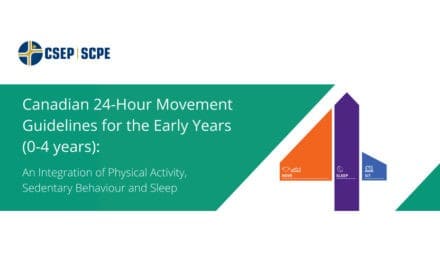HALO researchers Dr. Travis Saunders and Dr. Mark Tremblay co-authored a paper, “Long-Term Importance of Fundamental Motor Skills: A 20-Year Follow-Up Study,” along with other researchers including former HALOite Dr. Meghann Lloyd that was recently published in Adapted Physical Activity Quarterly. A summary of the paper and citation details are below.
Lloyd M, Saunders TJ, Bremer E, Tremblay MS. Long-Term Importance of Fundamental Motor Skills: A 20-Year Follow-Up Study. Adapt Phys Activ Q, 2014,31:67-78.
ABSTRACT: The purpose of this study was to investigate the potential long-term association of motor skill proficiency at 6 years of age and self-reported physical activity (PA) at age 26. Direct motor performance data were collected in 1991 with a follow-up study occurring in 1996, and then indirect questionnaires (self-report) administered in 2001 and 2011. In 2011, 17 participants who were identified as either having high motor proficiency (HMP) or low motor proficiency (LMP) in 1991 completed a series of 4 questionnaires. Analyses were conducted to determine whether there were differences between groups for motor skill proficiency, PA, or sedentary behavior, and whether these outcomes were related across ages. Motor skill proficiency at age 6 was related to self-reported proficiency at age 16 (r = .77, p = .006), and self-reported proficiency between 16 and 26 years (r = .85, p = .001). Motor skill proficiency at age 6 was positively associated with leisure time PA at age 26 in females and participants in the HMP group. The results may provide preliminary evidence about the importance of how early motor skill proficiency relates to long-term PA. More research with larger sample sizes is needed to investigate the importance of motor skills over time.
Click here to read the paper in full for free.





